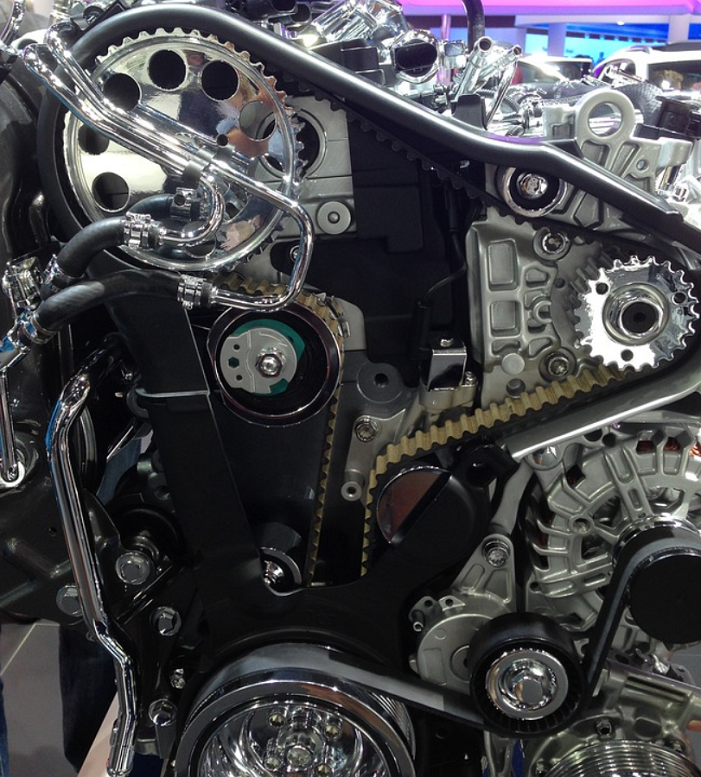
Yuandong was founded in 1953. In 1969, it was recognized as the first professional manufacturer of transmission shafts by the Ministry of Machinery. In 2003, it was restructured into a limited liability company. In 2007, it was changed into a company limited by shares.Yuandong has 1200 sets of professional production and testing equipment, 162 "U-shaped CNC one-stream production line", with an annual production capacity of 6 million sets of non-equal speed drive shafts. The products cover more than 8,000 varieties of light, medium, heavy and engineering machinery, and are widely used in all automotive and construction machinery except cars. Road vehicles: from micro-buses, light trucks to luxury buses, missile launch vehicles, missile service vehicles, breakout vehicles and 300-ton heavy trucks. Off-highway vehicles: from desert transport vehicles, exploration vehicles, loaders, 100-ton dump trucks, excavators to seismic vehicles, fire engines, 20T-800T cranes, the wide range of applications, the variety, is an industry model. The market share of light trucks is 46%, the market share of heavy truck series products is 45%, and the market share of engineering machinery series products is over 60%. It has a leading position in the industry competition.
Yuandong was listed on the SME Board of the Shenzhen Stock Exchange on May 18, 2010, with stock code 002406
Website: www.yodonchina.com/
The year 2019 marks the fortieth anniversary of China’s Reform &Opening-Up, once again, we meet at the turning point of history. What’s the next step for the game, is there any clear guidance? The answer is affirmative.
Our country is enjoying a good momentum of development, which does not come from the Washington Consensus nor the Beijing Consensus. China’s experience has proved that both the visible hand and the invisible hand are crucial: the visible hand, stands for the government-led reform, and would yield benefits for reform and opening up; the invisible hand, stands for the Marginal Power represented by the private sector, and would improve economic efficiency and tax collection, create jobs and employment opportunities.
Provided that we want to protect and expand the benefits form reform, three simple but mandatory agreements are to be made and followed: No.1 Private ownership must be recognized, protected and treated equally with public ownership constitutionally, both ownerships are scared and inviolable;No.2 Make further clarification of the principal position of market economy, “deepen economic system reform by centering on the decisive role of the market in allocating resources”, as President Xi addressed in the third Plenary Session of the 18th CPC Central Committee;No.3 Implement the guiding principles of “comprehensively promoting law-based governance” of the fourth plenum. The rule of law is essential for economic growth, irreplaceable to protect private ownership, and necessary to encourage innovation and entrepreneurship.
Above are three rules for us to avoid falling into the Middle-income Trap. Assuming that we are breaking systematic barriers to private enterprises’ participation in market economy, and boosting innovation and entrepreneurship of our society, then we are heading towards a promoting direction. We are marching in the path of light, regardless of the ups and downs of Sino-US relationship, the drop in GDP growth rate, or the monetary policy.
These principals also apply on knowing how better to run a business: don’t be hedged by rules and regulations at the beginning, pay more attention to your survival, and you’ll learn more when you start your second business.
For many years, Huawei has been the only Chinese company on the list of the Top 50 R&D Spenders. Regardless of the economy and its income, what Huawei has been doing is investing in its future, dedicated to R&D, continuously and resolutely. This provisional work underscores Huawei’s accomplishments, making Huawei anindustry leader.
So, there are standard answers on how to run a company,which could be summarized as concentration and professional dedication, continuous investment on innovation and trying harder in R&D. Entrepreneurship is also important, every single company needs entrepreneurs to push aside all obstacles and difficulties, to implement strategies and ideas. We, as investors, are destined to look for such outstanding entrepreneurs and their companies, invest in them and partner with them.
At this key point of history, a country, a company, or asingle individual, will all need to find the right path. Four decades after the Reform and Opening-up, it’s time to learn from our experience and stop “wadding across
